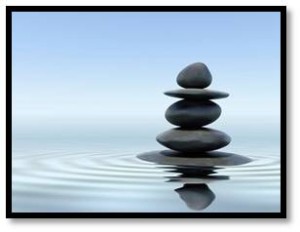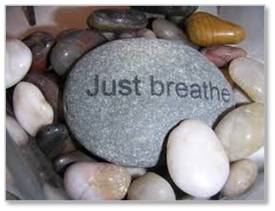Take nothing in your life for granted. That sounds so simple and so obvious but we do it every day, mostly for one of five reasons:
- We make big assumptions that ordinary things will continue and nothing will upset the order of our lives.
- We don’t stop our busy lives long enough to think about all the things that we have to be grateful for in life.
- We tend to look ahead instead of around us and plan for the future instead of living in the moment.
- We see what we expect to see instead of what is really there in front of us.
- We want more, expect more, demand more instead of considering how we can make do with what we already have—or less.
What Thanksgiving is Supposed to Be
Thanksgiving is supposed to be a day when we stop to recognize and truly express our gratitude. Unfortunately, it often becomes a whirlwind of activity instead: driving or flying to visit relatives, cooking, setting up the table, making sure everything is ready on time, cleaning up the kitchen, watching the Rose Parade or football games, playing family touch football, cleaning up after the dog who scarfed something he shouldn’t have, cleaning up after the kids, and on and on.
When I was doing Thanksgiving for family members I would take a shower at night to scrub off what felt like an inch of turkey grease and then collapse with a book. (Nothing good is ever on TV but now we have Netflix, Hulu, and Xfinity On Demand.)
This year I’m bringing a couple of very manageable side dishes to a friend’s house. Last year we ate our turkey on board the Viking Forseti during a Viking River Cruise in the Bordeaux wine country. (Now that was a lot to be grateful for.)
Everyday Thanksgiving
 But we don’t have to wait for one day a year to think about the gifts we live with. Now that I’m not working full-time (and thus no longer rising with my head whirling with things to do on the job) I try to start my day with meditation.
But we don’t have to wait for one day a year to think about the gifts we live with. Now that I’m not working full-time (and thus no longer rising with my head whirling with things to do on the job) I try to start my day with meditation.
This meditation doesn’t have to be long—even ten minutes will do—but I try to get in a half hour. I go into the sun room, sit comfortably, take three deep ujjaiy breaths, and close my eyes. Then I think of a few things to be grateful for, which is not difficult. They don’t have to be big or important things.
First and foremost I think that I am grateful for this gift of a new day and for the health, strength and energy to enjoy it. Think about that. No one guarantees us another day of life. People die unexpectedly every day so this, above all, is something we should not take for granted. Other people live but in pain and suffering, don’t have enough food or clean water, can’t walk or move their limbs. To have a day of healthy life is a great gift.
 I have also been grateful that:
I have also been grateful that:
- It rained to nourish plants and recharge the water table.
- It stopped raining so that my evening tour will be dry and pleasant.
- All my children and grandchildren are alive, strong and healthy.
- Mystique outran the fox yesterday.
- The election is over and my candidate won the popular vote, even though she lost the Electoral College.That I have numerous communities of friends who enrich my life.
- People read my blog and seem to enjoy it.That I have wonderful friends and colleagues.
- I can afford to live a pleasant life in a nice place.
- We saw a good movie.
- We have been invited to a party.
- I have the talent and ability to write and channel creative ideas.
- I have a husband who loves me and supports me.
Stop and Meditate
See? Lots of things. And that’s just scratching the surface. When you stop—really stop—and think—really think—you’ll find many things to be grateful for as well. The trick is stopping. You can’t find the time; you have to make the time.
If you can’t meditate in the morning because it’s a all about getting everyone out of the house on time, then try the evening. Turn off the TV, find a quiet place and sit comfortably. Meditation is the easiest thing in the world. you don’t have to do it on a mountaintop, by the ocean or in a zen garden. You don’t need any gear or equipment. You don’t even have to cross your legs.
 Next, take three ujjayi breaths. Quiet your mind. Focus your thoughts just above your lip on the breath going in and out. Repeat a mantra if that helps. When your thoughts wander, bring them back to your breathing. This is not failure.It will happen over and over.
Next, take three ujjayi breaths. Quiet your mind. Focus your thoughts just above your lip on the breath going in and out. Repeat a mantra if that helps. When your thoughts wander, bring them back to your breathing. This is not failure.It will happen over and over.
Meditation is the process of calming your thoughts and that means bringing them back to your breath every time they wander. No one is grading your practice and you can’t fail.
Before you finish meditating, set an intention for yourself. This also can be anything. You can, for example, intend to be calm, patient, energetic, loving, creative, productive, focused, helpful, or expressive. Maybe your intention is just to have a pleasant night or get a good night’s sleep. Setting the intention helps you to achieve it. I often set an intention when I’m driving that I will arrive safely. No biggie. So far, so good.
This Thanksgiving make some time amid the fuss and family to stop, to think, and to be grateful. You’ll feel good afterward.

